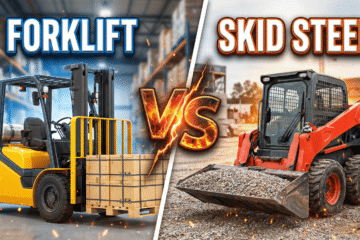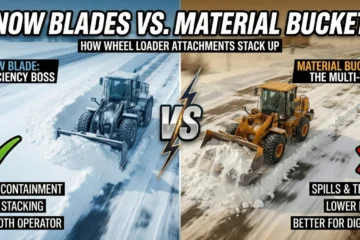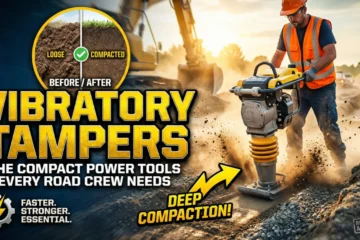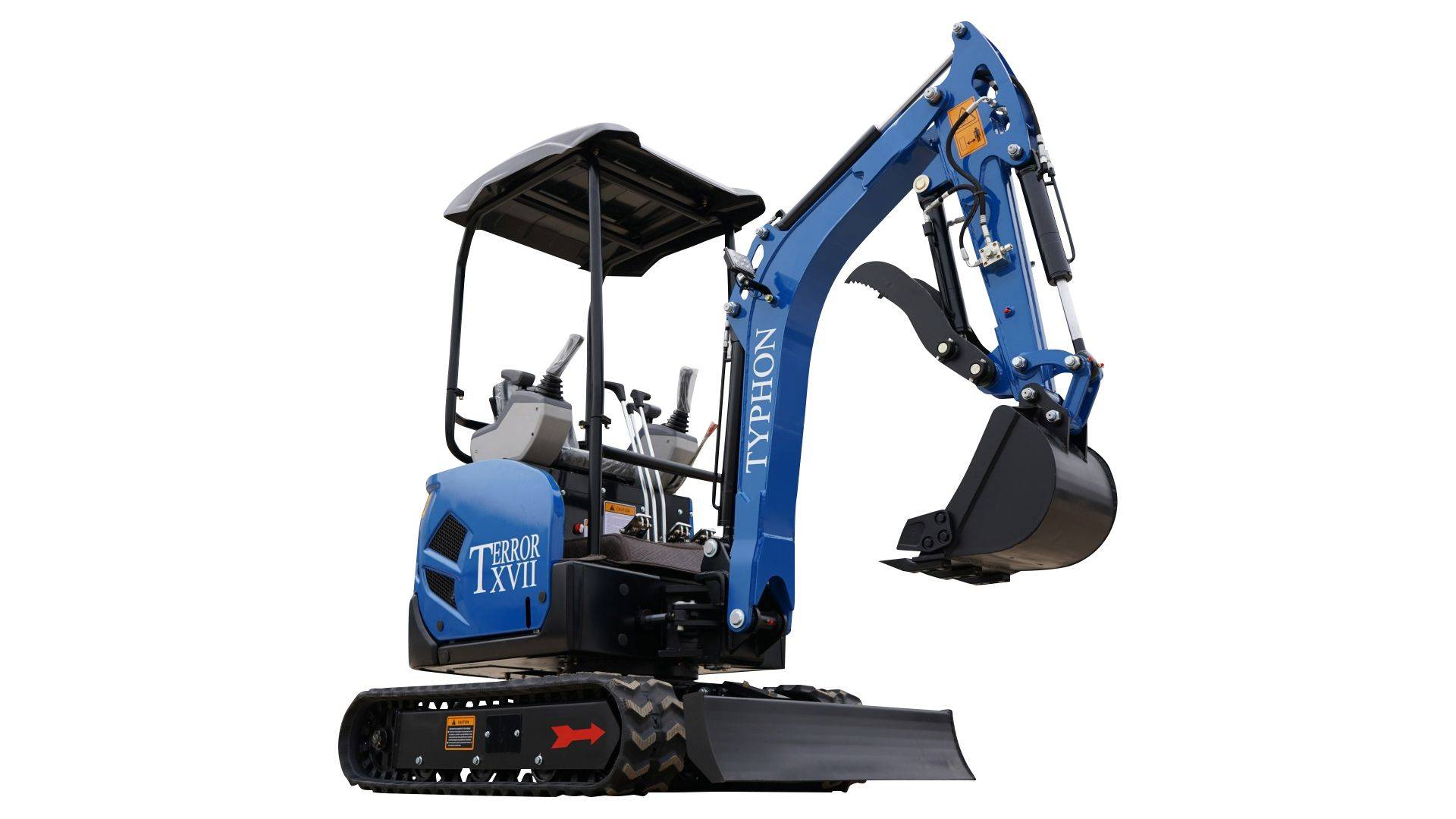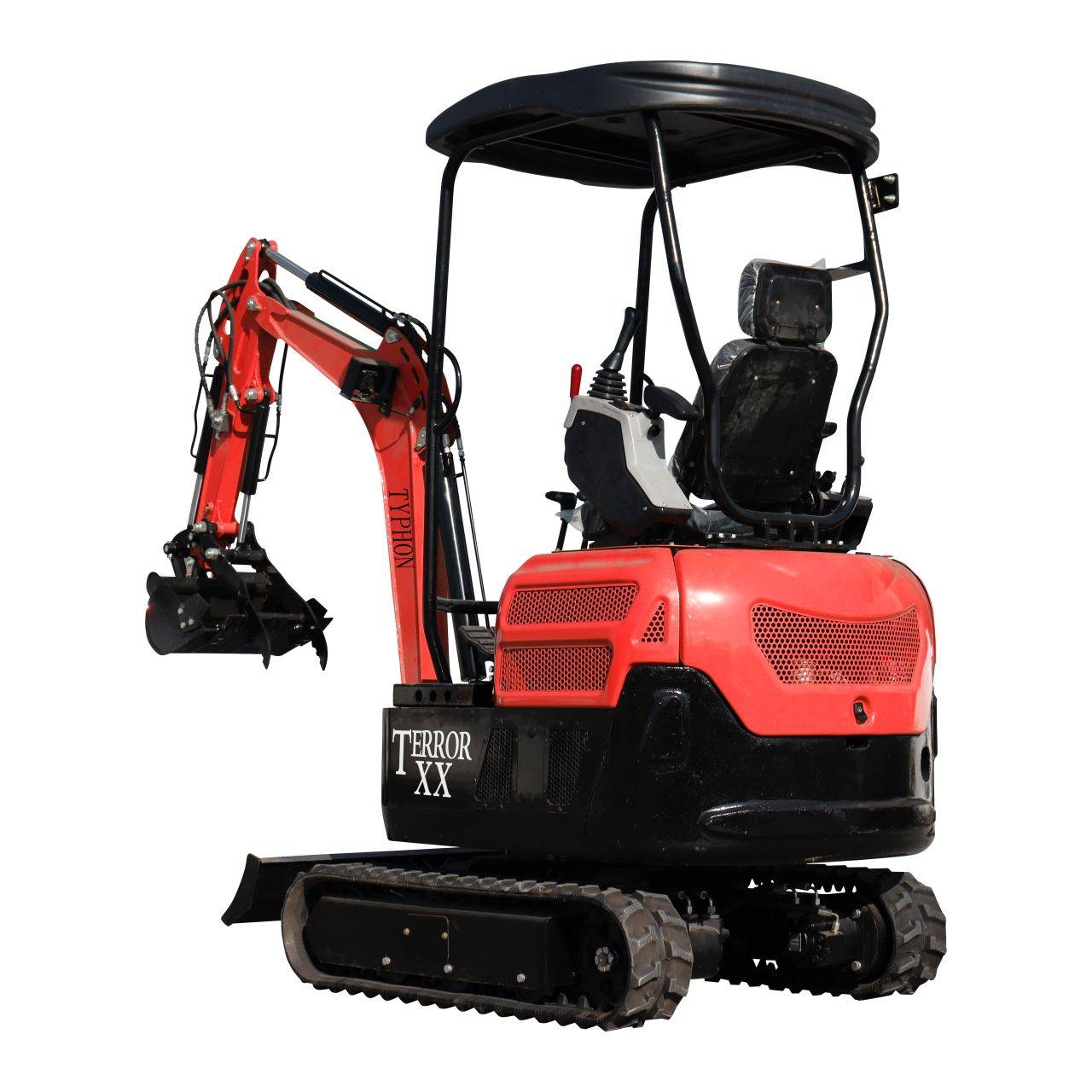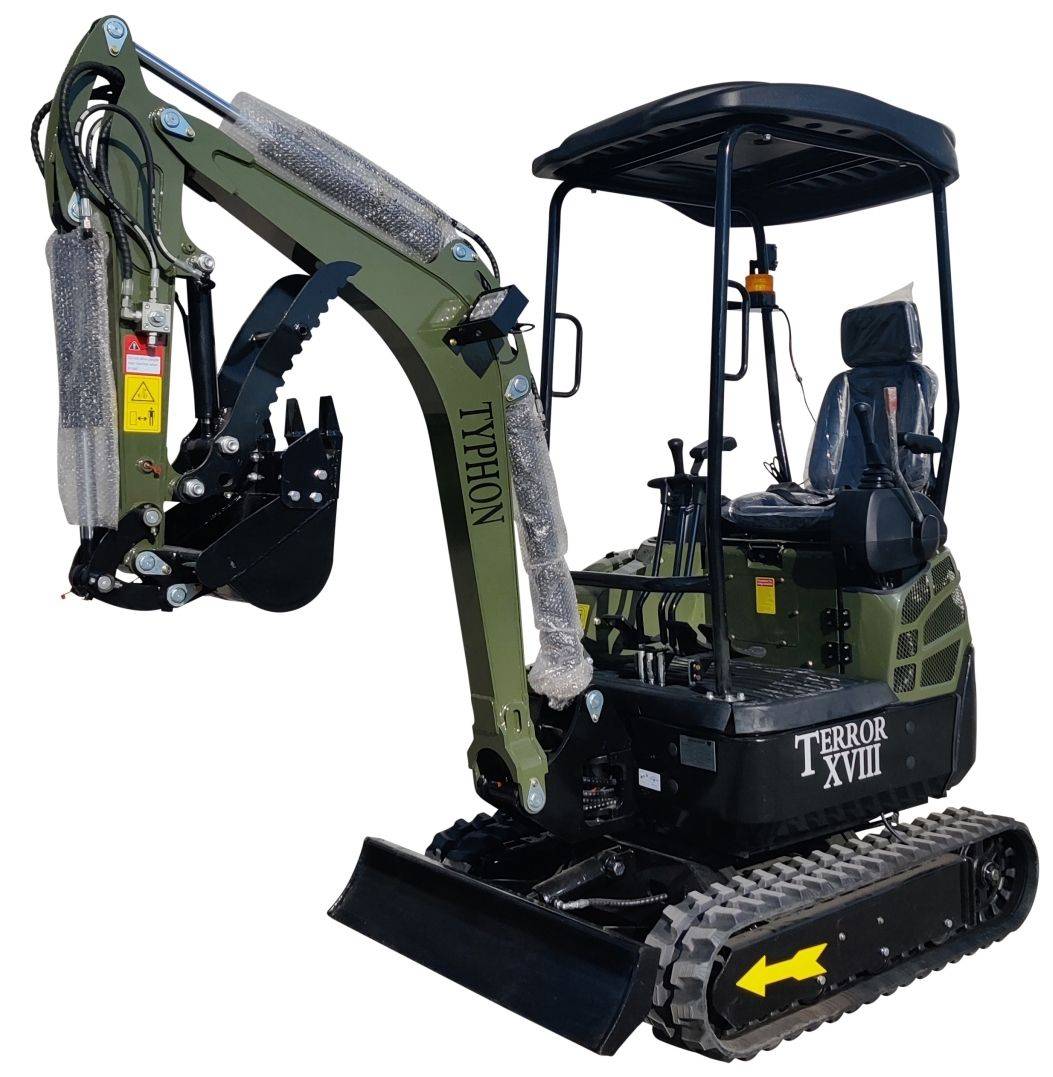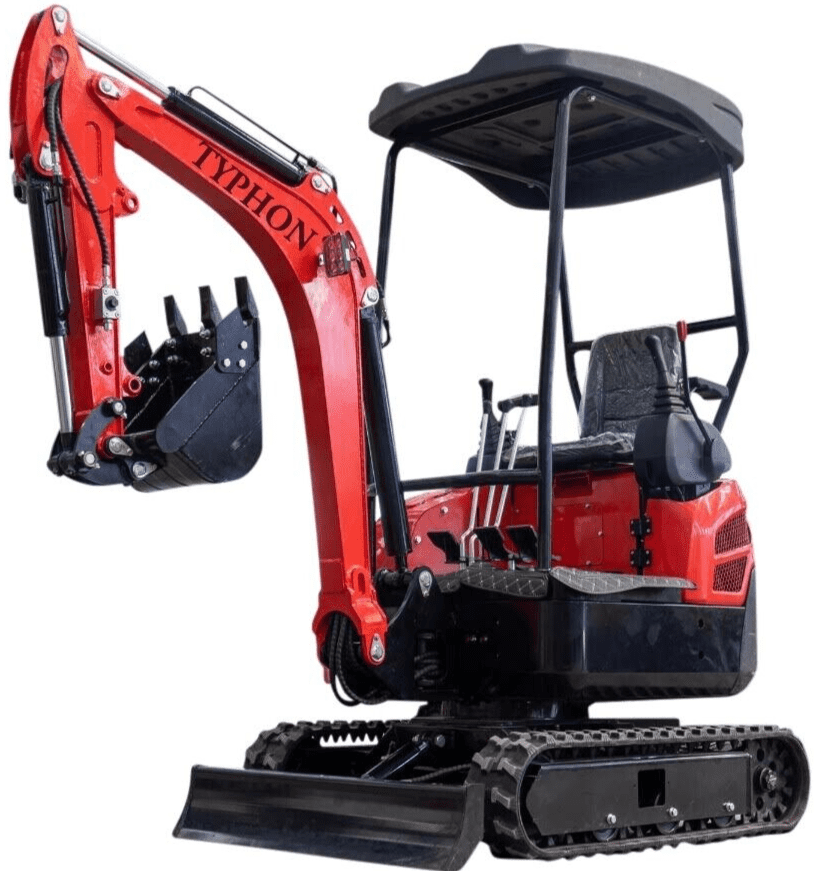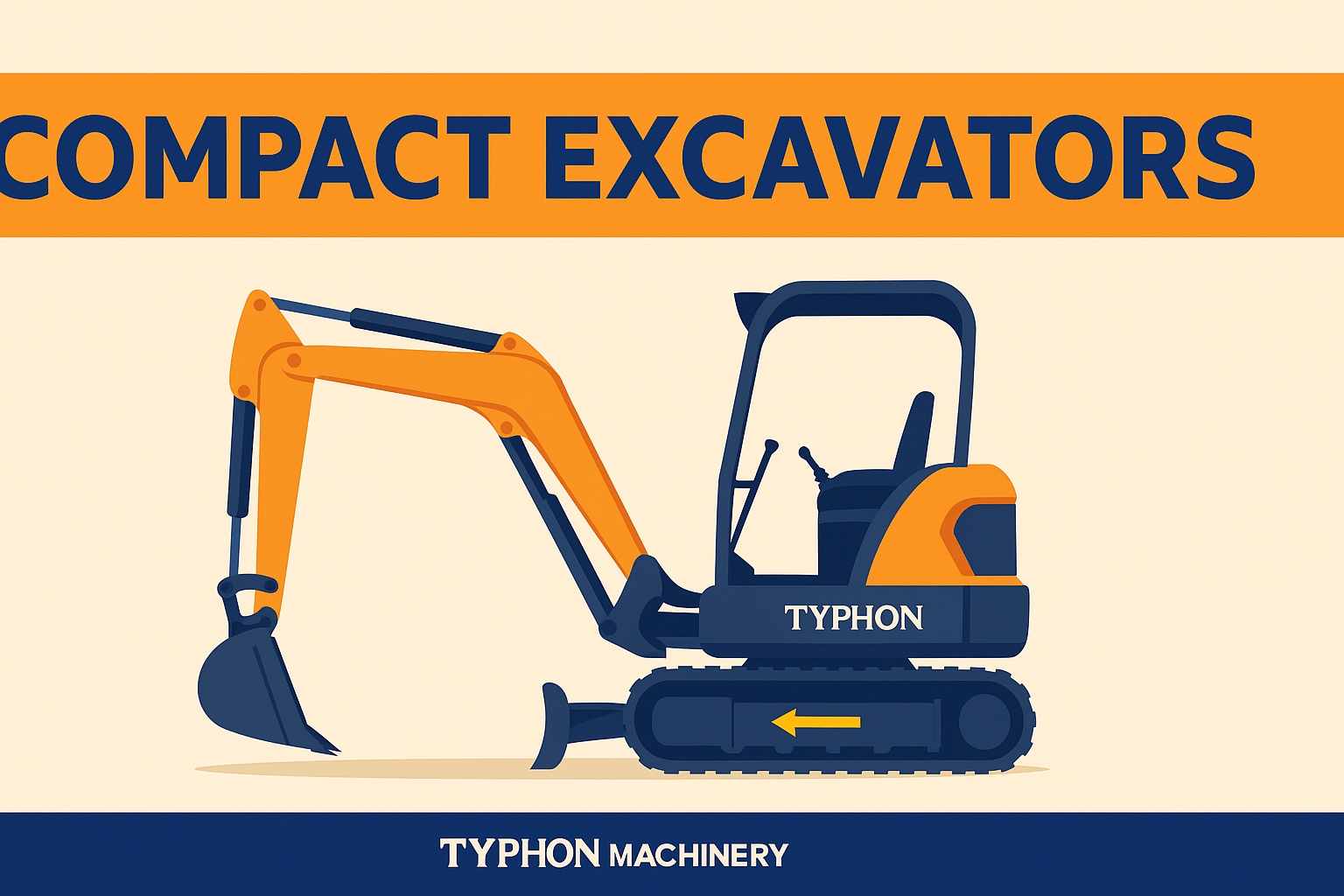
Compact Excavators
Compact Excavators: The Ultimate Solution for Versatile Digging Power
With the change in the construction and landscaping sector, the demand for efficient, flexible, and compact power has become apparent. Compact excavators or mini excavators have changed the way the professionals carry out the work in the field of earthmoving, trenching, grading, and site preparation. Because of their small size, sophisticated hydraulic systems, and ability to operate in confined areas, they have become a necessity in the construction, landscaping, agriculture, and utility sectors.
This comprehensive guide dives deep into what compact excavators are, their benefits, uses, attachments, and maintenance aspects and thus helping you to decipher the reasons for which they have become the first choice machines in different job sites around the globe.
What is a Compact Excavator?
Simply put, a compact excavator is a small but mightily effective hydraulic earthmoving machine that generally weighs from 1 to 10 tons. This machine is equipped with a boom, dipper arm, bucket, and a rotating platform (house) mounted on tracks or sometimes on tires. In spite of the fact that the size is smaller when compared to the full-size excavators, compact excavators still offer impressive digging depth, hydraulic performance, and lifting capacity.
Compact excavators are the perfect ones for the places where large diggers can’t reach. Because of their zero-tail-swing or minimal-tail overhang features, they are the safest and therefore the most appropriate ones to work next to walls, fences, or in the city areas without the risk of causing an accident.
Key Features of Compact Excavators
- Compact Design: Facilitates getting in and out of very tight sites such as a residential backyard, utility trenches, and urban construction zones.
- Advanced Hydraulic Power:Dual or variable flow hydraulics enable the machine to operate multiple attachments such as breakers, augers, and grapples at the same time.
- 360-Degree Rotation:The rotating upper part of the body increases the digging efficiency and also enables the material to be placed on the other side without the need of moving the machine again.
- Rubber or Steel Tracks: Rubber tracks are used for minimizing the damage to the surface of already finished landscapes whereas steel tracks are preferred for the rugged work environments.
- Operator Comfort: The present-day cab or canopy options provide ergonomic controls, climate features, and improved visibility.
Advantages of Using Compact Excavators
Compact excavators are a mixture of size, efficiency, and power, which means that job productivity is greatly improved while operational costs are kept at a lower level.
- Exceptional maneuverability: Can be utilized with great efficiency in very tight or restricted areas.
- Fuel efficiency: The smaller engine consumes less fuel, which results in lowering operational costs and emissions.
- Lower transportation costs: The lightweight construction is an advantage when it comes to moving your machine on trailers as there will be no need for heavy transport.
- Multi-functionality: With the correct attachments, a compact excavator is capable of performing other tasks besides digging that is grading, breaking concrete, lifting materials, etc.
- Reduced site damage: Rubber tracks are designed in such a way that the weight is being evenly distributed and thus the ground disturbance is minimized.
- Ease of training: The controls are simple and thus both new and seasoned operators will find them user-friendly.
Popular Uses for Compact Excavators
1. Residential and Commercial Construction
Compact excavators are very good at foundations and site preparations. The work of digging trenches, grading surfaces, and moving the soil done swiftly by them makes them very much essential on construction sites.
- Excavationfooting of small buildings or extensions.
- Digging utility trenches for plumbing and electrical pipes.
- Grading driveways and leveling uneven terrain.
2. Landscaping and Property Development
Landscapers employ compact excavators for shaping the land and advancing the designs of the property.
- Removing stumps, rocks, and debris.
- Digging ponds, drainage ditches, or garden foundations.
- Installing retaining walls or irrigation systems.
3. Utility Installation and Maintenance
The use of compact excavators is a must for the fast utility works that are non-disruptive and are performed by municipal and private contractors.
- Digging trenches for water, gas, and electrical lines.
- Repairing or replacing underground infrastructure.
- Installing fiber optic and telecommunication cables.
4. Agriculture and Farming
Agricultural professionals and farmers are given the chance to perform small-scale earthmoving and land maintenance tasks with the help of compact excavators.
- Clearing irrigation ditches and creating drainage channels.
- Installing fence posts and utility lines across agricultural fields.
- Loading and moving soil or feed materials.
5. Roadwork and Municipal Maintenance
Due to their accuracy and small size, compact excavators are very important in urban development and maintenance.
- Ditch cleaning and culvert maintenance.
- Sidewalk and pavement repairs.
- Snow removal (if equipped with blades or sweepers).
6. Demolition and Waste Management
By equipping compact excavators with grapples, thumbs, or hydraulic breakers, you can efficiently and quickly complete small demolition and loading tasks.
- Breaking up concrete or asphalt.
- Removing debris and loading it into dump trucks.
- Recycling and sorting materials on small demolition sites.
Essential Attachments That Expand Functionality
Compact excavators become very powerful when they can work with a wide range of attachments which turns one machine into a productive multi-purpose tool.
- Standard buckets: General-purpose digging or grading.
- Tilt buckets: For slope shaping and precise landscaping tasks.
- Augers: Drilling post holes or foundation supports.
- Hydraulic breakers: For concrete or asphalt demolition.
- Rippers: Loosening compact soil or frozen ground.
- Thumbs and grapples: Moving large rocks or debris.
- Trenchers: Cutting uniform trenches for piping or cabling.
Quick-coupler systems make it very easy and quick to swap attachments, which is a great time saver on worksites where the task is constantly changing.
Operator Safety and Efficiency Tips
Compact excavators are built with safety in mind, however, it is important that they are operated properly and inspected regularly.
- Fully inspect your machine by walking around it before every use.
- Check for underground utilities before digging.
- During work, try to keep the weight balanced to avoid the machine toppling over.
- If you use the right attachment for the job, your hydraulic system will not be overstrained.
- Even when there are no risks, clear communication should be maintained if there is ground personnel around.
- Adhere to all safety regulations laid down by OSHA and local authorities.
Regular preventive work on your machine such as changing the hydraulic filter, looking over the condition of the tracks, and lubricating the parts will definitely make it more reliable and will extend its lifespan.
Factors to Consider When Choosing a Compact Excavator
- Operating weight and dig depthYou need to match the maximum excavation depth and lifting capacity required for your projects.
- Hydraulic flow rateThe higher the flow, the more demanding attachments such as augers, or breakers can be used.
- Machine widthThis is very important when the work is indoor or in tight spaces.
- Tail swing radiusA zero-tail swing machine is perfect for working in the city with lots of close obstructions.
- Cab vs. canopy designA cab provides the user with protection from the weather and a comfortable working environment, while a canopy is lighter and is suitable for short-duration projects.
- Ease of transportSelecting the model that fits within your trailer’s load capacity will be of great help in reducing logistics costs.
Maintaining Compact Excavators for Peak Performance
The proper care and servicing of your excavator not only keeps it in top condition but also extends its operational life.
- Daily inspections: Oil levels, hoses, and tracks should be checked.
- Lubrication: Manufacturer’s intervals should be adhered to when greasing pivot points.
- Hydraulic fluid checks: Level and cleanliness should always be correct.
- Track care: Tension should be adjusted regularly to avoid slippage or wear.
- Cooling system maintenance: Radiators should be cleaned and coolant replaced from time to time.
- Engine service: Filters and oil should be changed at the hours recommended.
If maintenance is ignored, there will be a decrease in performance, the machine will overheat, or it will wear prematurely—thus, such a situation is very common in high-cycle environments, like construction or demolition.
Sustainability and Innovations in Compact Excavators
The innovations in compact excavators are mainly about electrification, telematics, and better hydraulics. Now, a lot of manufacturers feature battery-powered excavators in their lineup, which are perfect for indoor use or zero-emission areas. These units provide almost noiseless operation, less maintenance, and sustainable performance without compromising digging power.
On top of that, telematics and digital diagnostics can greatly improve the management of the fleet by offering real-time tracking of fuel efficiency, operator habits, and maintenance schedules, thus allowing better productivity planning and cost savings.
Why Compact Excavators Remain in High Demand
The need for compact excavators doesn’t stop to rise all over the world and it is mainly due to the balance of power, portability, and precision they offer. The question of “why would a contractor, who needs an all-purpose machine, landscapers, municipal engineers, or other people, use any other machine?” can be easily answered with the word I).
One of the biggest reasons behind their success is the time and resources they save by being able to perform all kinds of jobs involving trenching, leveling, and material handling which makes them one of the most cost-efficient pieces of equipment in any fleet.
Typhon Machinery: Your Trusted Partner in Compact Excavators
Typhon Machinery is a top producer of construction equipment and compact excavators that holds out well in terms of performance, reliability, and cost efficiency. With the main components made of heavy-duty materials, well-designed hydraulic systems, and operator-friendly controls, Typhon compact excavators are the products of engineering for professional contractors as well as for independent operators.
If what you want is to buy, rent, or extend your fleet, Typhon Machinery is the company that offers you the means of doing more with less. Precision, power, and long-term value are what Typhon excavators bring to the table for each project—from trenching to landscaping and demolition to grading—thus making them smooth, efficient, and profitable.

